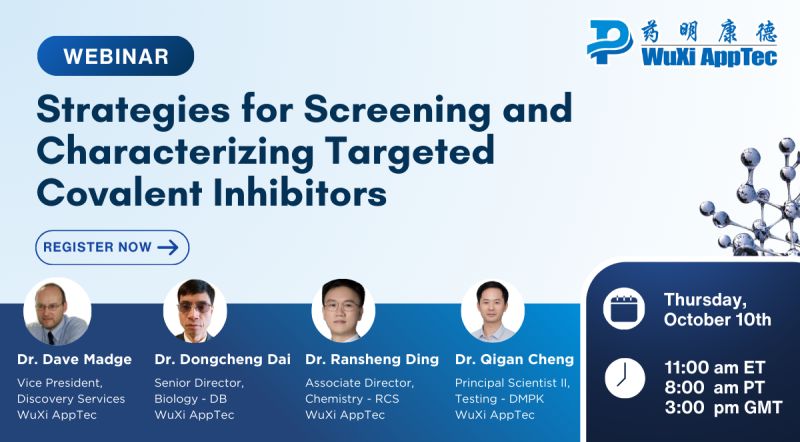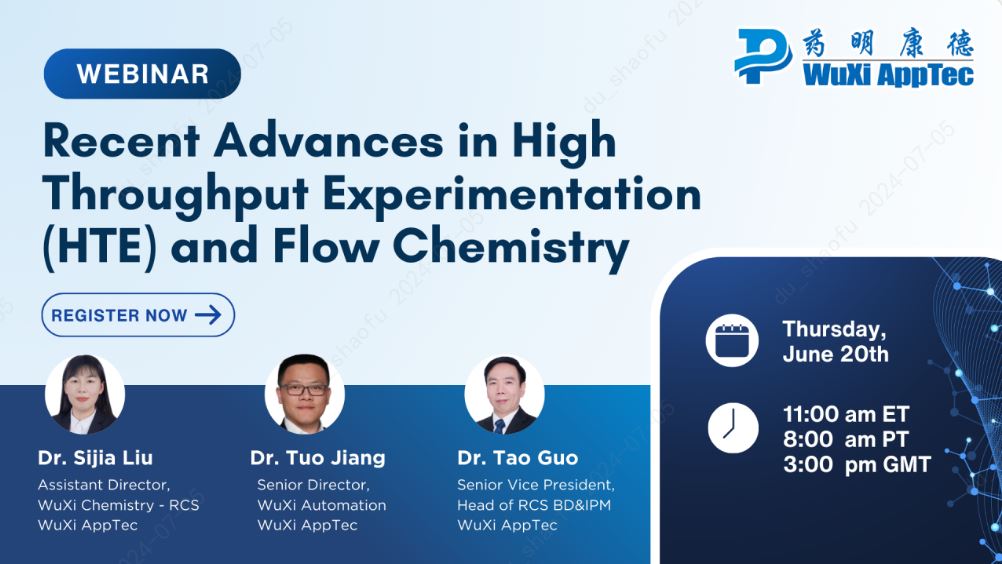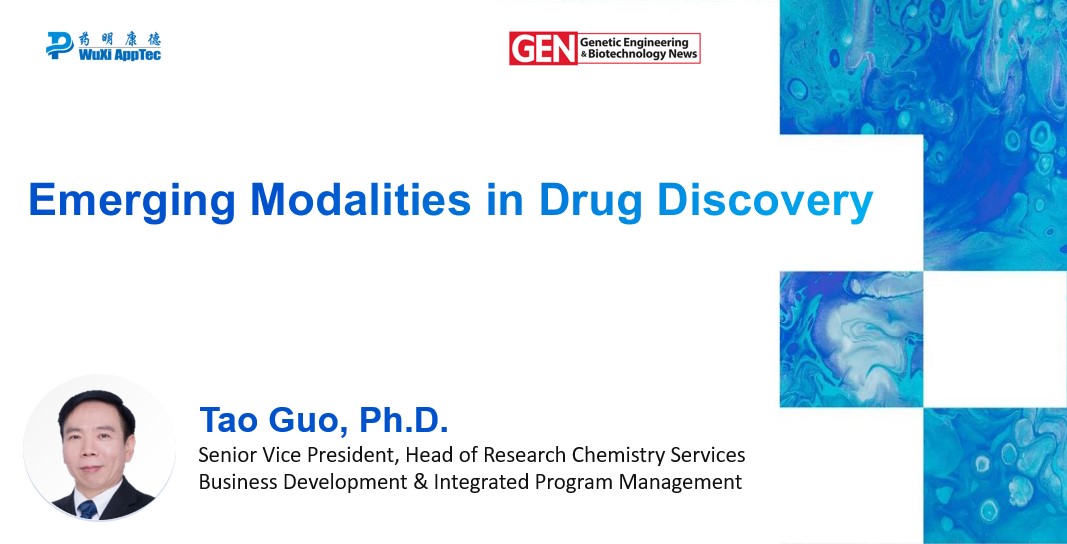WuXi Biologics
Offering End-to-End Solutions
Webinars
-

-
Strategies for Screening and Characterizing Targeted Covalent Inhibitors
With advancements in drug design, there is resurging interest in drugs that form covalent bonds with their targets, often referred to as targeted covalent inhibitors (TCIs). In this webinar, experts discuss innovative approaches to screen for covalent binders, strategies for the synthesis of covalent warheads, and assays to optimize the ADME/DMPK properties of these molecules.
This webinar offers a comprehensive perspective on strategies that are crucial for accelerating research focused on covalent drug discovery.
-

-
Recent Advances in High Throughput Experimentation (HTE) and Flow Chemistry
In this webinar, we will present the details of using high throughput experimentation (HTE) to identify reaction conditions for challenging transformations, giving access to a diverse array of medicinal chemistry targets. In parallel to using the conventional batch reactions to synthesize these targets, we also incorporate flow chemistry into the early phase helping reaction up-scaling as well as solving specific chemical problems. Case studies will be provided for both topics.
-

-
Emerging Modalities in Drug Discovery
In this webinar, we will present the latest advances and challenges facing researchers focused on new and emerging modalities in drug discovery. Topics will include targeted protein degradation, targeted covalent inhibitors, and nucleic acid therapeutics. Our expert speaker, Dr. Tao Guo, will discuss solutions for addressing the complexities in designing, synthesizing, and optimizing these molecules, with an added focus on the special modifications and delivery systems needed for siRNAs and ASOs.
-

-
Recent Advances in Library Synthesis to Accelerate Medicinal Chemistry Research
Library synthesis is the process of synthesizing a series of compounds and evaluating them for hits that have desirable therapeutic properties toward a given target. This approach allows project teams to undertake efficient and systematic screening of biological pathways or target classes, improving the success rate of drug discovery programs. Pharma companies are increasingly developing and applying innovative capabilities to make better molecules faster. Many enabling chemistries and technologies have been developed to improve the access to target molecules with expanded chemical diversity.The development of high-throughput experimentation technology has made it possible to execute a large number of experiments in a short time frame, enabling the rapid identification of suitable reaction conditions, thereby expanding library accessible chemical space and allowing more diverse molecules to be made via parallel synthesis. With such higher-quality molecules, chemists can increase the success rate and reduce cycle time of hit finding and lead optimization. Moreover, new protocols can be used to guide the follow up of singleton compound synthesis, improving the efficiency of medicinal chemistry research. Attend this webinar to learn more about these recent advances in parallel library synthesis.
How can we help?
Get in touch with an expert.
